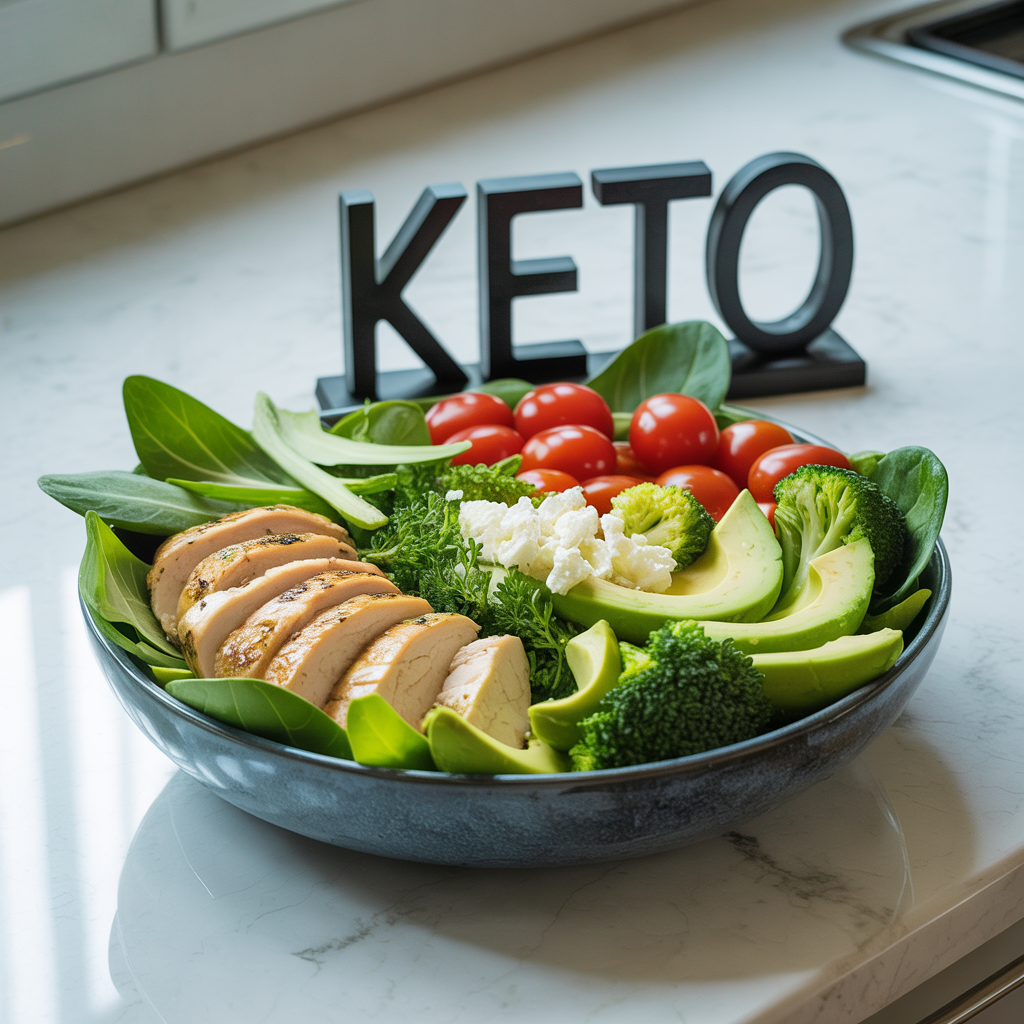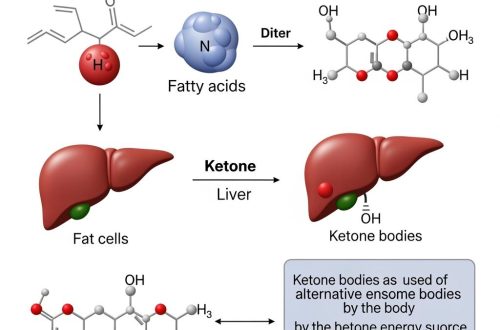Keto Happened to Be the One That Helped Me Feel Like Myself Again.
For years, I thought I was looking for the perfect diet. You know the feeling—scrolling through transformation photos at 11 PM, bookmarking yet another meal plan that promised to change everything. I’d tried them all: counting points, cutting calories, going vegetarian, intermittent fasting. Each time, I’d start with fierce determination, convinced that this would be the one. And each time, I’d end up right back where I started, feeling defeated and wondering what was wrong with me.
But here’s what I’ve learned: I wasn’t actually looking for a diet. I was looking for a way to feel like myself again.
The Fog I Didn’t Know I Was In
Looking back, I can see the signs clearly. The 3 PM slump that had me reaching for my third cup of coffee. The brain fog that made simple decisions feel overwhelming. The way I’d crash on the couch after dinner, too exhausted to do anything but scroll mindlessly through my phone. I thought this was just adult life—doesn’t everyone feel this way?
I’d normalized feeling tired. I’d accepted that my joints ached when I got out of bed. I’d convinced myself that needing a nap after lunch was just part of getting older. At 34, I felt like I was living in a body twice my age, but I couldn’t pinpoint exactly when things had shifted. It happened so gradually that I didn’t even realize how far I’d drifted from feeling good.
The breaking point came during a family vacation. We were hiking a trail I’d done easily five years earlier, and I had to stop every few minutes to catch my breath. My kids ran ahead while I pretended to admire the view, really just trying to hide how winded I was. That night, looking at photos from the day, I barely recognized myself. Not just physically—though that was part of it—but something in my eyes looked… dimmed.
Why Keto Was Different (Hint: It Wasn’t About the Weight)
When a colleague mentioned she’d started keto, I’ll admit I rolled my eyes internally. Another diet trend. But then she said something that caught my attention: “I have so much energy, I don’t even need coffee anymore.”
Energy. Not weight loss, not fitting into old jeans—energy. That’s what I was desperately missing.
I started researching that night, and what struck me about keto wasn’t the before-and-after photos (though there were plenty). It was the people talking about mental clarity, stable moods, and—that word again—energy. They described exactly what I was missing: feeling alert without caffeine, thinking clearly without the afternoon fog, having the stamina to actually live their lives after work.
So I decided to try it. Not as a diet, but as an experiment. What if changing what I ate could change how I felt?
The First Two Weeks: Rougher Than Expected
I’m not going to sugarcoat it—the beginning was tough. The “keto flu” is real, and I spent the first few days feeling like I was getting sick. Headaches, fatigue, and cravings that had me dreaming about bread. I remember standing in my kitchen on day four, staring at my kids’ sandwich crusts and genuinely considering eating them.
But I’d committed to giving it a real shot, so I pushed through. I drank what felt like gallons of water, added salt to everything, and discovered that pickles were my new best friend. By day five, something shifted. The headache lifted. By day seven, I woke up before my alarm—something that hadn’t happened in years.
By the end of week two, I felt like someone had cleaned my windshield after driving through mud for months. Everything seemed clearer, brighter, more manageable.
Beyond the Scale: The Changes That Actually Mattered
Yes, I lost weight on keto. But honestly? That became the least interesting part of the whole experience. What really changed my life were the things no scale could measure:
Mental clarity: The brain fog I’d accepted as normal? Gone. I could focus on tasks without getting distracted every five minutes. Work projects that used to feel overwhelming became manageable. I actually enjoyed problem-solving again instead of feeling like my brain was working through molasses.
Steady energy: No more 3 PM crashes. No more needing three cups of coffee just to function. I had consistent energy from morning to night—real energy, not the jittery, anxious kind that comes from caffeine and sugar.
Better sleep: I’d forgotten what it felt like to wake up actually rested. On keto, I started sleeping deeply and waking up ready for the day instead of hitting snooze four times.
Mood stability: The irritability I’d blamed on stress? The anxiety that had me snapping at my family? Much of it was actually related to blood sugar swings. With stable blood sugar came stable moods.
Reduced inflammation: Those achy joints I’d attributed to aging? They stopped hurting. The puffy feeling I always had? Gone. My wedding ring fit comfortably again.

Learning to Listen to My Body Again
Keto taught me something crucial: my body had been trying to tell me things all along, but I’d stopped listening. I’d gotten so used to overriding its signals—pushing through fatigue with caffeine, silencing hunger with whatever was quick and convenient—that I’d lost touch with what it actually needed.
On keto, I had to pay attention. I learned to recognize real hunger versus cravings. I noticed how certain foods made me feel, not just while eating them but hours later. I discovered that the afternoon slump I’d considered inevitable was actually my body’s response to lunch.
This awareness extended beyond food. I started noticing when I needed rest versus when I had energy to burn. I paid attention to how stress affected my cravings. I began treating my body like a partner instead of something to wrestle into submission.
It’s Not About Perfection
Here’s what I wish someone had told me: you don’t have to be perfect. There have been birthdays where I’ve eaten cake. Vacations where I’ve relaxed my rules. Stressful weeks where I’ve made choices I wouldn’t normally make. And you know what? The world didn’t end. I didn’t “ruin everything.”
Because keto gave me something more valuable than weight loss—it gave me a baseline. I now know how good I can feel, so when I don’t feel that way, I know how to get back there. It’s not about never deviating; it’s about knowing how to reset when you need to.
Finding What Works for You
I’m sharing my story not because I think everyone should do keto, but because I think everyone deserves to feel like themselves again. For me, keto was the reset button I needed. For you, it might be something entirely different.
The key is to stop looking for a quick fix and start looking for what makes you feel alive again. Pay attention to your energy levels, your mental clarity, your mood. Notice what makes you feel better and what makes you feel worse. Your body is incredibly wise when you learn to listen to it.
If you’re feeling like I was—tired, foggy, not quite yourself—know that it doesn’t have to be your normal. You don’t have to accept feeling mediocre. Whether it’s keto or something else entirely, there’s a way to feel like yourself again.
I didn’t need another diet. I needed to remember what it felt like to wake up excited about the day ahead. I needed to rediscover the energy to play with my kids after dinner. I needed to feel clear-headed and capable again. Keto happened to be the tool that helped me find my way back to myself.
And that feeling? It’s worth more than any number on a scale.





